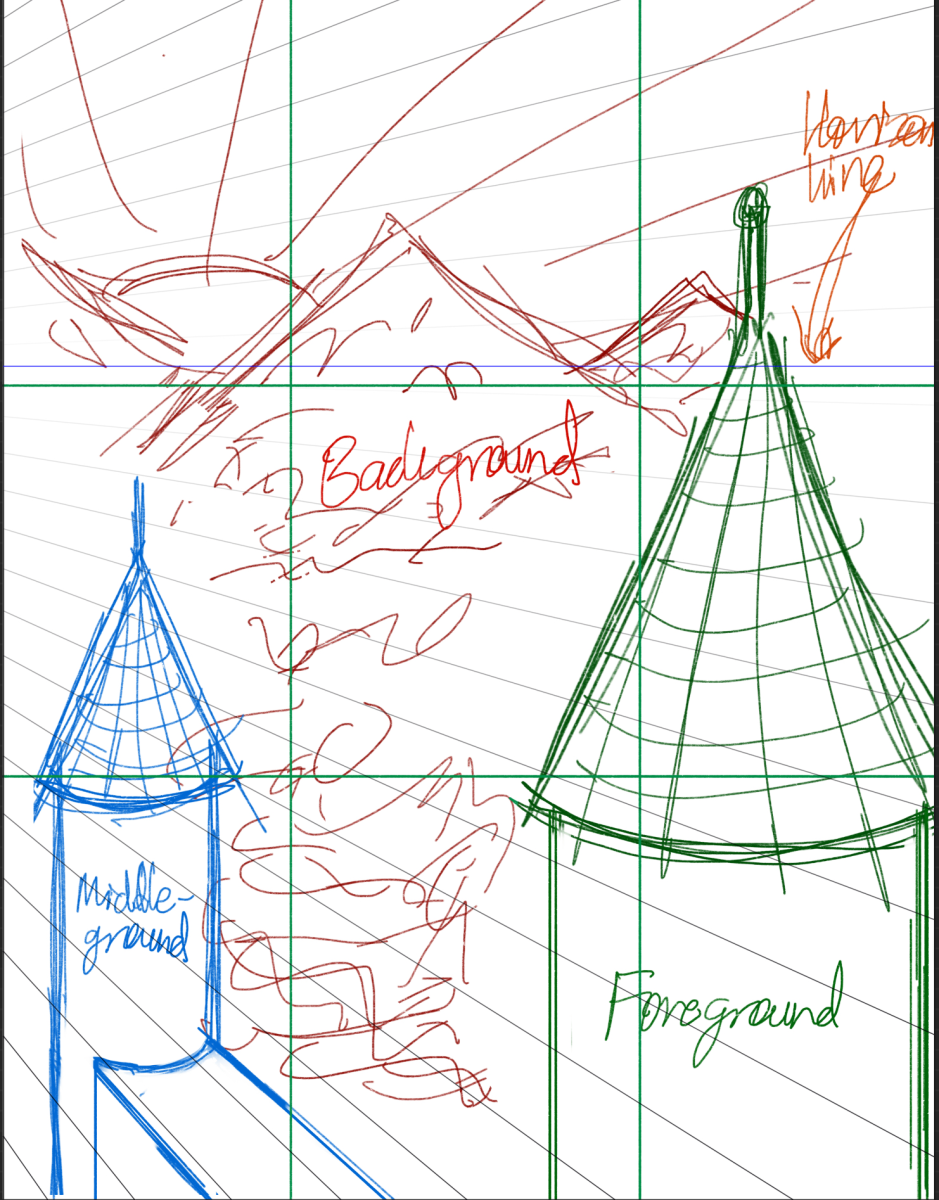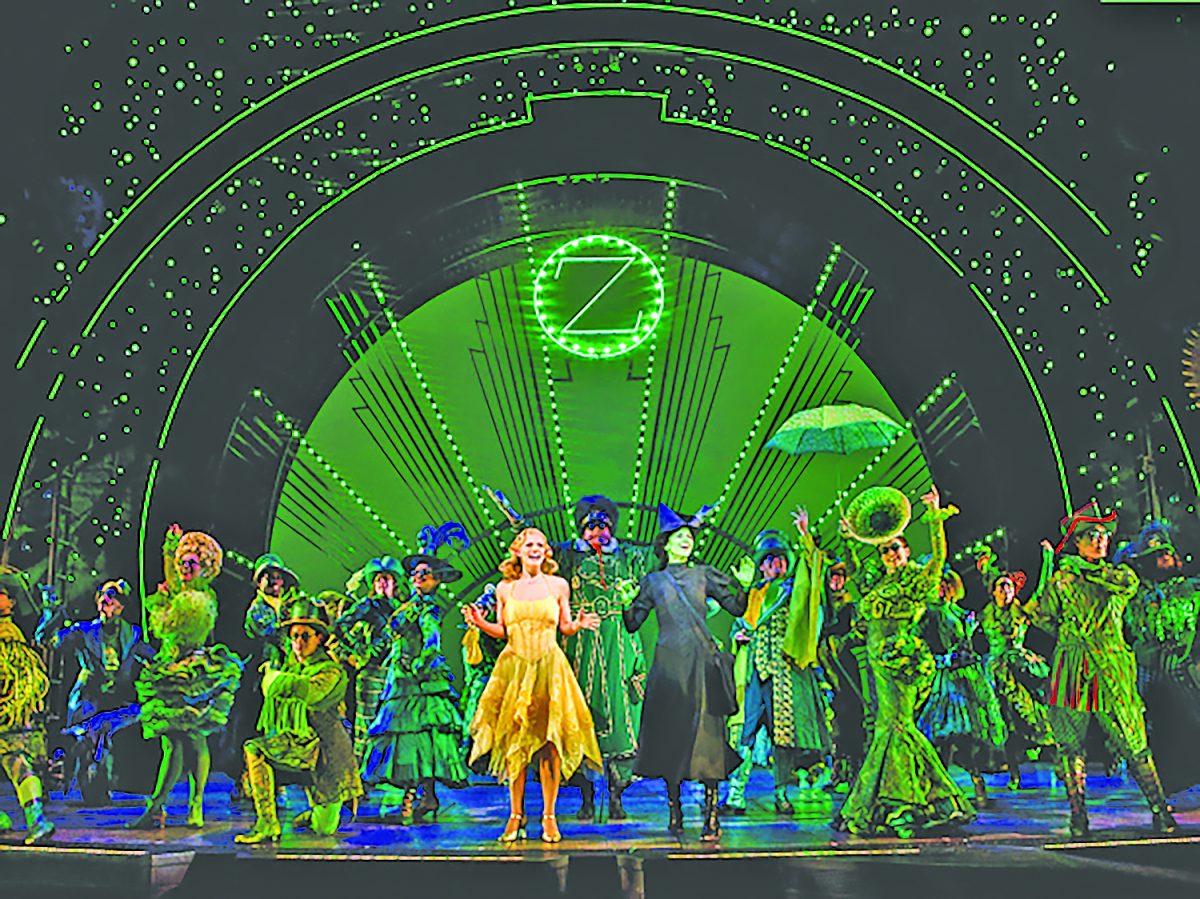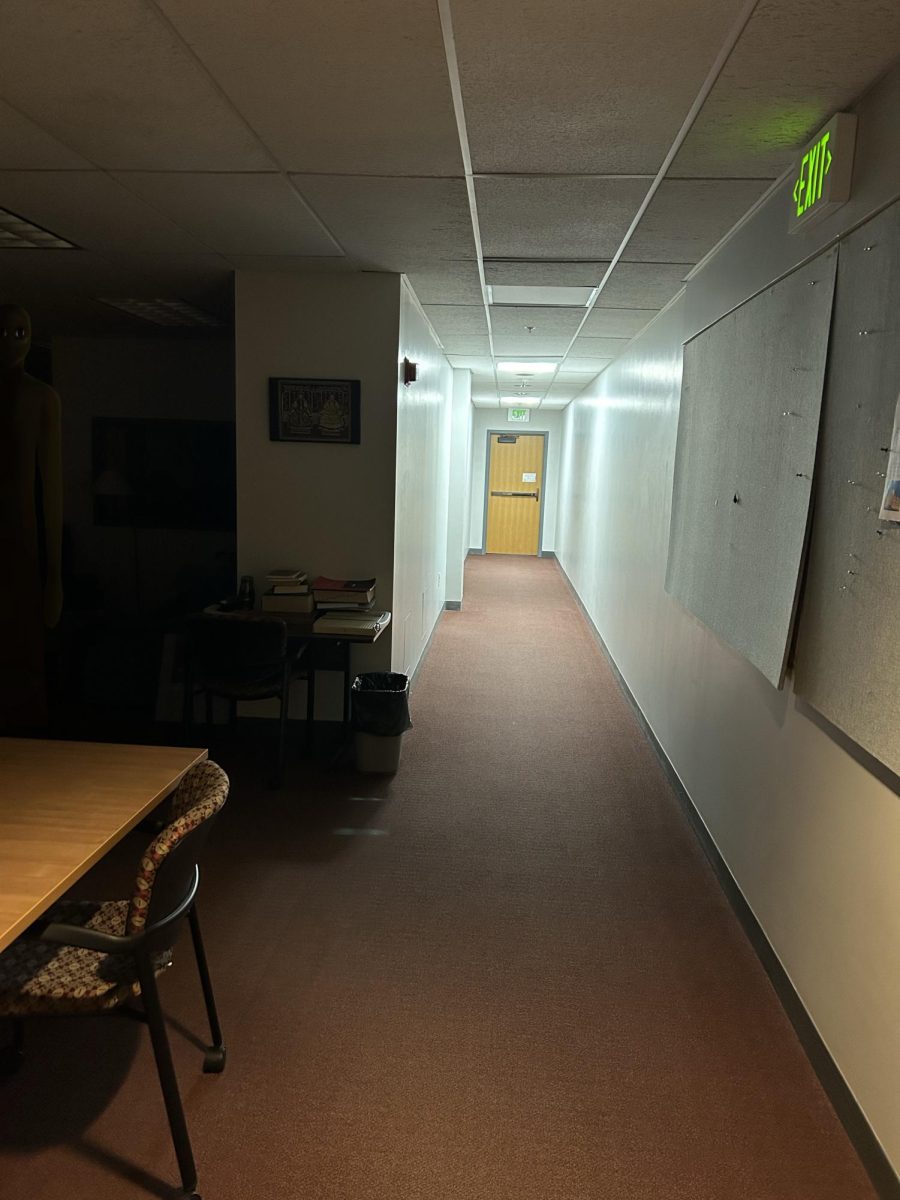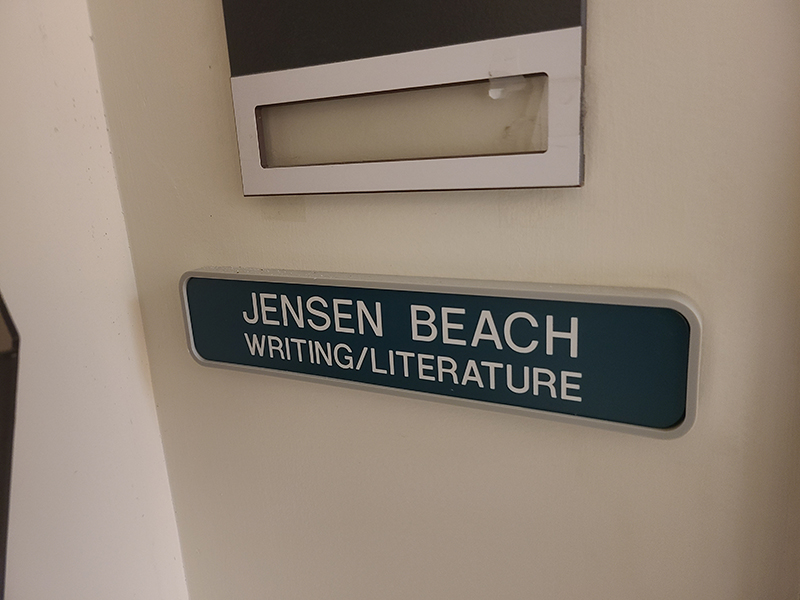Poet Elizabeth Bradfield braved the applause following her introduction, took the podium, encouraged no sympathy, and made no amends. She’d come to read some poems. The first was entitled “Of Seasonality.”
Thursday, Feb 7 in The Stearns Space, Bradfield gave backdrop for each poem. She peeled back just enough myth from the stories of early explorers to the world’s poles to allow her audience to see where she was headed and wherefrom she came.
“Liz shot through our campus like a bolt of inspiration,” said Jacob White, assistant professor of Writing and Literature. “Her poetry, with its mincingly specific imagery, shows the power of precision in art, and how getting just the right word, and how arranging those words into just the right rhythms, can unlock heaving swells of feeling deep beneath the frozen surface.”
Bradfield’s star is in its ascendency. Her books, “Interpretive Work,” and “Approaching Ice,” have garnered critical praise. The latter, her most recent, was a finalist for the James Laughlin Award.
Bradfield’s poems are not timid; she is as iconoclastic with her subjects as she is reverent with her meter, and captured within the grinding, cracking, seaward encroachment of her verse are ancient, frozen truths which her words carry along tirelessly. Time alone would calve them into the sea of human understanding even if Bradfield weren’t there to quicken the process, but it is easier to let her brave the wilds, and to peruse her observations from our collective easy-chair. “To read Bradfield’s work is to travel to far frontiers and to slip through the ice-holes of time,” observed White.
As diffuse light slipped through the west facing windows of the Stearns Space, Bradfield read “Frank Hurley, Photographer on Shackleton’s Endurance Expedition -1915.” The poem’s last lines seem to showcase its heart: “Has there ever been a better measure/ of hope’s precise and illogical weight.” She seems not to judge Shackleton’s possible hubris, but simply to delight in thespectacle of his endeavoring.
White has gotten to know Bradfield a bit. “As a person she is disarmingly engaging and talked at great length with students and faculty, and she seemed extremely impressed by the creative community that has been cultivated at JSC,” said White. “She spent a great deal of time talking to students about craft in Elizabeth Powell’s poetry workshop. I’m also proud to say that the Green Mountains Review will be publishing work by Bradfield (for a second time) in our spring 2013 issue.”
Right in the middle of her program she delivered her poem “Right Whale: Death as Spectacle,” first published in the Green Mountains Review . It describes a carcass rotting on a beach. It is poignant and macabre, with lines such as, “…and death fascinated me, but my grandmother/ had already put behind her tonnages of grief…” Her poems tend to stay with you, like five tons of whale beached upon your consciousness.
In the midst of “Right Whale: Death as Spectacle,” sits the word, “Flensed.” It means to strip the flesh from the carcass of a whale.
Bradfield’s verses flense from nature and man alike, what might otherwise rot on the beach.







